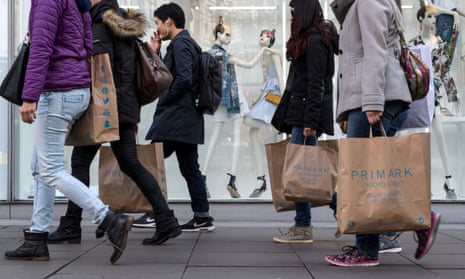Consumer confidence slumped in the 12 days after the general election to its lowest level since the aftermath of last year’s Brexit vote, as households were unnerved by the impact of a hung parliament.
A poll by YouGov found that consumers feared the unstable political situation would hit house prices and dent their living standards, which have already come under pressure in recent months from high inflation and sluggish wages growth.
The consumer confidence index showed a “pronounced collapse in consumer confidence following the election” after it fell from 109.1 in the week before the vote to 105.2 in the period immediately after it.
For June as a whole, consumer confidence dropped to 106.9, its second-lowest level since the summer of 2013.
YouGov said the steep fall was almost as severe as the dive in consumer confidence that followed the Brexit vote, when it plummeted from 111.9 in the weeks before the referendum to 104.3 in the days after it.
Soon afterwards the Bank of England to cut the base interest rate to its lowest ever level of 0.25% and the government signalled a relaxation of its plans for further cuts to public spending.
Since last August, when confidence surveys recovered some lost ground, the index, which was carried out for the economic consultancy CEBR, has tracked lower, largely in response to uncertainty surrounding Brexit negotiations.
Stephen Harmston, head of YouGov, said: “Consumer confidence has been generally ticking downward since last autumn but the events of the past month have placed it under greater pressure.
“The hung parliament seems to have further dampened consumers’ spirits, which were already sinking following the continued squeeze on household finances.
“But the real cause for alarm will be the cooling of the property market as this is one of the key things that has propped up consumer confidence over the past few years,” he added.
Inflation hit its highest level for nearly four years in May at 2.9%, tightening the squeeze on consumers already struggling due to low wage growth, which is averaging 2% to 2.5%.
YouGov said that although a score over 100 shows more consumers are confident than not, the index has yet to get back to its level before last June’s referendum.
Douglas McWilliams, the deputy chairman at the CEBR, said: “It looks as though the indecisive result of the election has seriously affected economic prospects already dampened by Brexit uncertainty.
“The data shows a sharp drop in consumers’ confidence about their own financial situation and even more so about house prices. This will affect spending in the high street, in shopping centres and online.”
McWilliams added that business confidence is also likely to have dropped, with the country to be spared a recession by strong international trade.
However, YouGov said the data suggested that the job security and business activity measures, both for the last 30 days and the next 12 months, were proving relatively resilient.
A report by the British Bankers’ Association showed consumer spending using loans and credit cards eased back last month as shoppers to rein in their spending. Consumer credit growth was 5.1% in May, compared with 6.4% in the previous month.
Mortgage approvals also fell 3.3% in May as the housing market suffered the effects of the election uncertainty and Brexit negotiations. At 40,347 in May, mortgage approvals were 9% below January’s peak level of 44,327.
Howard Archer, chief economic advisor to the EY Item Club, said: “Stuttering housing market activity has recently been weighing down on house prices. May data from the Halifax showed annual house price inflation at a four-year low of 3.3% in the three months to May, while it was at a 35-month low of 2.1% on the Nationwide measure.
“The fundamentals for house buyers could deteriorate further over the coming months with consumers’ purchasing power squeezed even more by a combination of higher inflation and muted earnings growth.
“It is also possible that the labour market will increasingly falter despite its current resilience. Additionally, housing market activity is likely to be hampered by soft consumer confidence and reduced willingness to engage in major transactions,” he added.

Comments (…)
Sign in or create your Guardian account to join the discussion